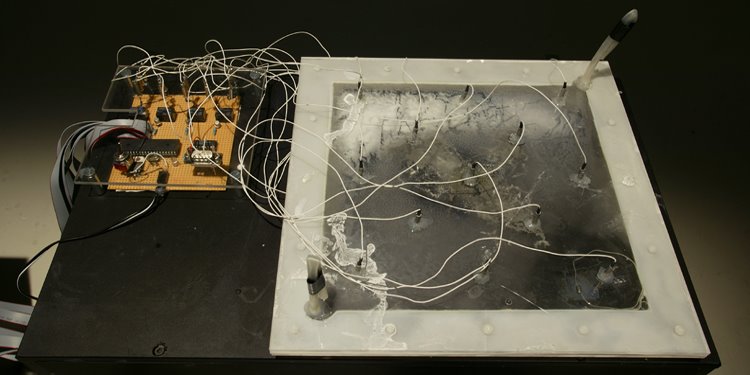Research Spaces IV, 4/5 December, 2007
Bartlett/Slade Annual PhD Conference
Woburn Studios, University College London, UK
The annual PhD research conference Research Spaces, has been running since 2004, affording post-graduates at the Bartlett School of Architecture, and the Slade School of Fine Art, the opportunity to examine research activities across disciplines. The event has continued to be a success, attracting contributions from the UK, Europe and North America, from practicing architects and artists, academics and research students.
The 2007 Research Spaces Conference – Telling Places: Narrative and Identity in Art and Architecture asks for contributions on new practices, theories and critiques of narrative and identity.
In a globalised context, conditioned by mass migrations of peoples – across national and ethnic boundaries, and from dispersed rural environments to dense urban centres – the idea that art and architecture can convey stable representations and values has come undone. At the same time, practices of place making are no longer considered the domain of the professional, nor as an inherent/given act, but as an ongoing, repeated, negotiated and contested process.
If the ‘place’ of art and architecture is already filled, and by competing stories, what else is to be told? What new responsibilities does this telling imply?
Over two days, the Telling Places conference will consider place as a space loaded with ‘familiar’ significance, whether this be personal or collective. We are interested in the objects, the artifacts, the means, the processes that narrate the creation of such places, as well as those that challenge, question or negate such places.
A selection of full papers will be published in the new interdisciplinary design journal Multi: The Journal of Diversity and Plurality in Design
Papers are invited that respond to, challenge and extend the following questions:
1) Places that Tell:
How do buildings, artefacts, models, or stories, contribute to the formation of cultural identity?
To what extent can culturally and ethnically specific representations be considered political?
To what extent are the limits of such representations set by the work (the object, the site), or set by the audience?
How, and what, does the non-representational object, or building, narrate?
2) Meeting Places:
Has a new ‘narrative of place’, challenged the boundaries between art and architecture?
What are the implications, for the relationship between art and architecture, of such narratives?
3) Telling of Places:
If narrative cannot be treated as ‘neutral’, what is its role in the examination of the history of art and design?
To what extent, and in what ways, does the historian, or critic, contribute to the construction/production of place?
In what ways does narrative affect ownership of the work?
4) Hidden Places:
To what degree can the artist or designer reveal the process of production, in the work itself?
Can practice be considered an act of identification?
To what extent is practice an ‘uncovering’, ‘unmasking’, ‘revealing’, or a ‘making known’, that which had been ‘guessed’, ‘assumed’, ‘hidden’, or even ‘secret’?
What models, technologies, procedures, and dialogues have been developed to ‘reveal’, and how are these limited (do they ‘hide’ as well?)?
What are the aesthetics, and ethics, of the ‘disguised’ work?
Guidelines for submission of paper abstracts:
Deadline 22nd October, 2007 – all respondents will here from the organising committee by 29th October 2007.
Abstracts 500 words for
10 page papers (approximately 20 minute presentations)
Abstracts must include title, but no author
All Proposals to include a cover letter with:
1) title
2) name and address
3) phone number
4) email address
5) college affiliation (if any)
To:
info@tellingplaces.co.uk or ucftnbe@ucl.ac.uk
Telling Places
c/o Nick Beech
Wates House,
22 Gordon Street,
London WC1H 0QB
Telling Places regrets that it cannot contribute towards the cost of travel or accommodation, please state if you require any information regarding these matters.
